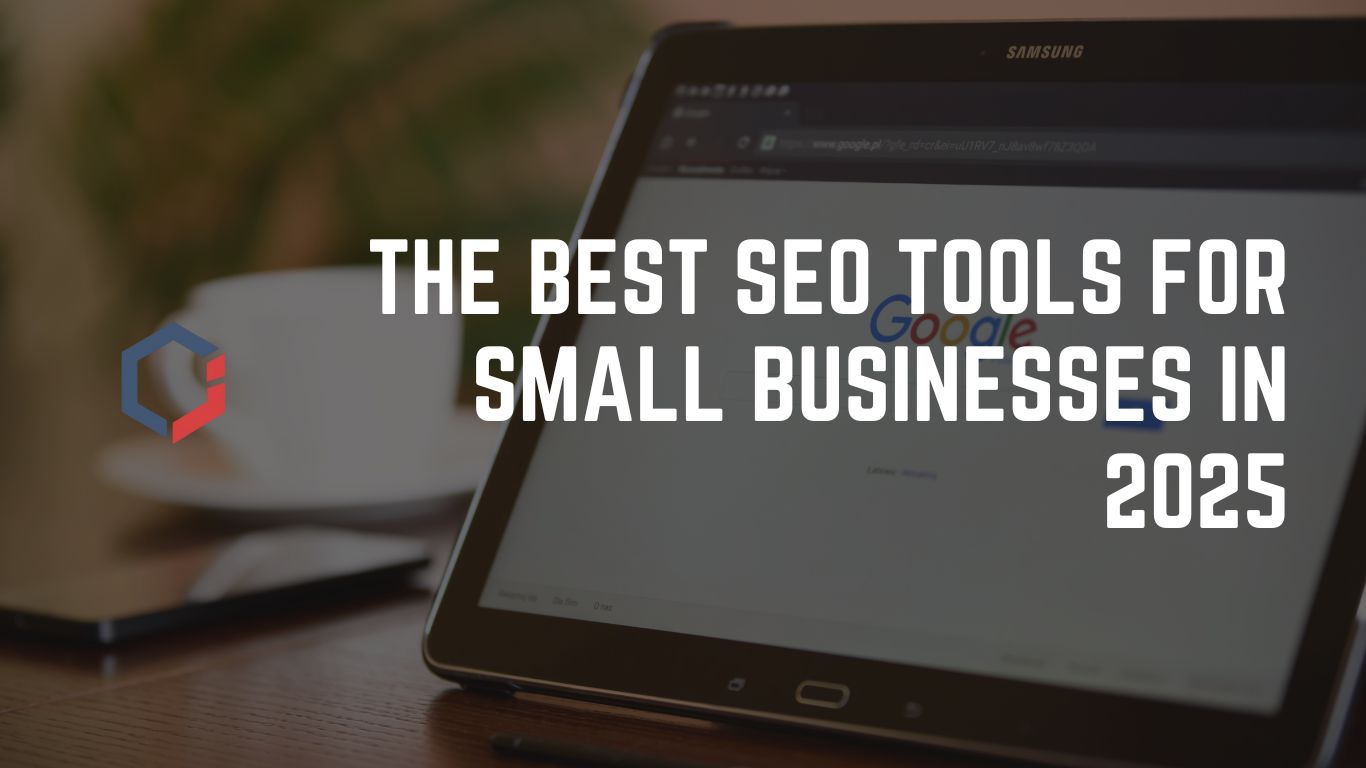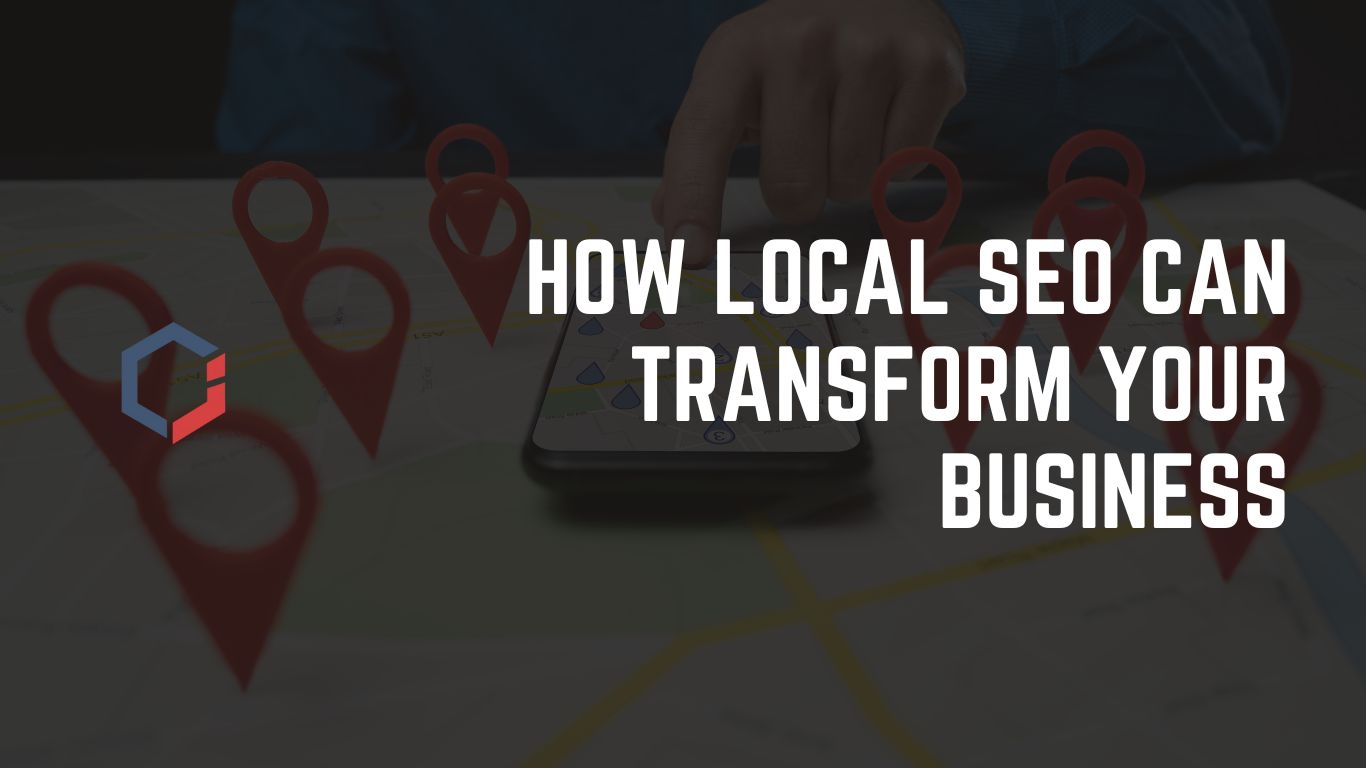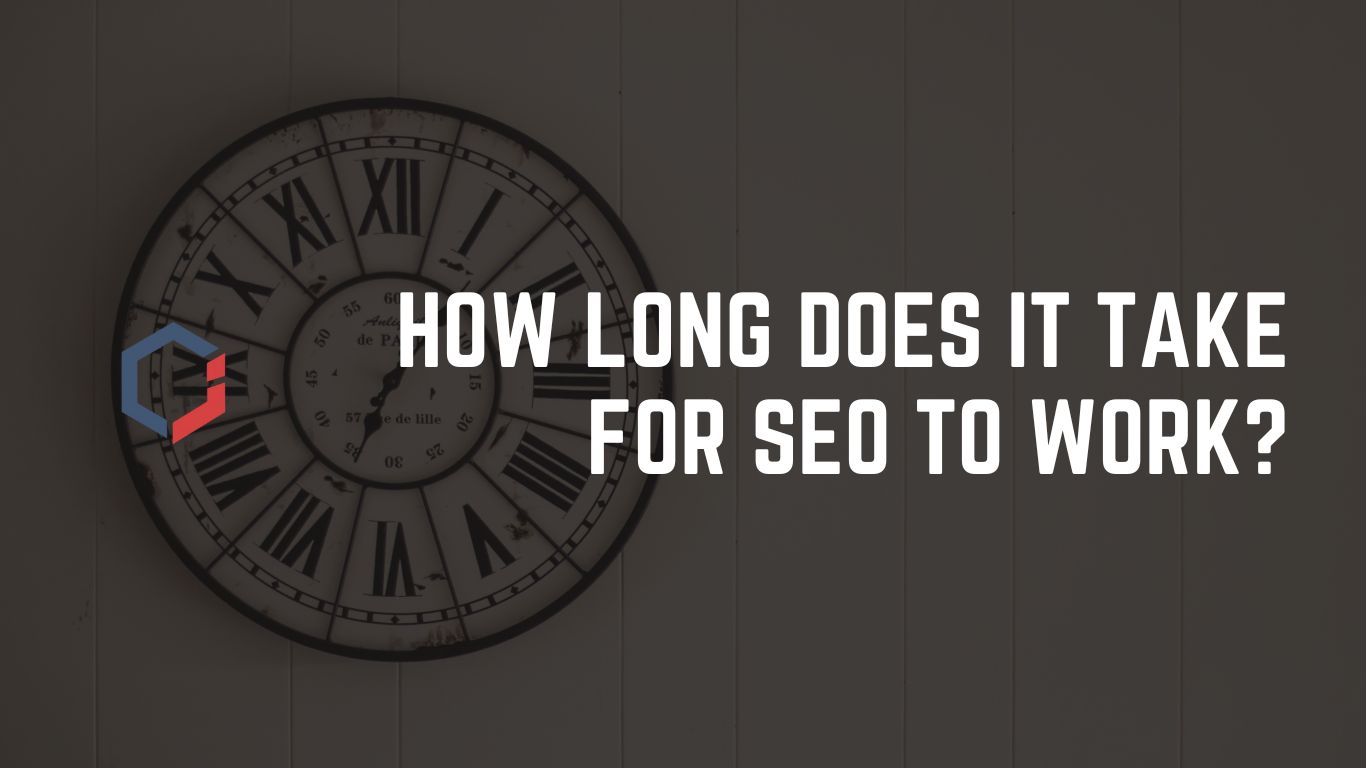Boosting your online presence can be a challenge. For small businesses, competing with big brands means you need smart SEO tools. These tools help you rank higher, find new customers, and grow faster. Picking the right ones saves time and money. In 2025, the market is packed with options. So, how do you choose? This guide covers the most effective and affordable SEO tools tailored just for small businesses.
Table of Contents
- Introduction
- Why Small Businesses Need Specialized SEO Tools
- Top SEO Tools for Small Businesses
- 3.1 Keyword Research Tools
- 3.2 SEO Audit and Website Analysis Tools
- 3.3 On-Page SEO Optimization Tools
- 3.4 Link Building and Backlink Analysis Tools
- 3.5 Local SEO Tools
- 3.6 Content Optimization Tools
- 3.7 Rank Tracking Tools
- Budget-Friendly SEO Tools for Small Businesses
- How to Choose the Right SEO Tools for Your Small Business
- Real-World Success Stories
- Expert Insights: SEO Professionals Weigh In
- The Future of SEO Tools for Small Businesses
- Common SEO Tool Questions Answered
- Conclusion
- Key Takeaways
Introduction
In today’s digital landscape, visibility is everything. For small businesses with limited resources, competing against larger corporations can seem daunting. However, with the right SEO tools in your arsenal, you can level the playing field and carve out your space in search engine results pages (SERPs). Studies show that businesses that invest in proper SEO strategies see substantial growth in both traffic and revenue over time.
The challenge lies in finding tools that are powerful enough to make a difference yet simple enough for small teams to implement without dedicated SEO specialists. This guide will help you navigate the crowded marketplace of SEO tools to find solutions that deliver real results without breaking the bank.
Why Small Businesses Need Specialized SEO Tools
Small business owners and their teams often wear many hats. Using complex, enterprise-level SEO platforms isn’t practical when you’re juggling multiple responsibilities. You need streamlined, cost-effective options that deliver clear, actionable results.
The Small Business SEO Advantage
Implementing proper SEO strategies offers several key benefits for small businesses:
- Increased visibility: Get found by potential customers searching for what you offer
- Targeted traffic: Attract visitors who are actively looking for your products or services
- Competitive edge: Stand out from competitors who neglect SEO
- Cost-effectiveness: Generate leads at a lower cost than paid advertising
- Long-term results: Unlike paid ads, SEO benefits compound over time
- Brand credibility: Ranking well signals authority and trustworthiness
According to recent research, small businesses that invest in SEO tools and strategies see an average of 53% more website traffic compared to those that don’t. Additionally, 78% of local mobile searches result in an offline purchase, highlighting why local SEO is particularly crucial for small businesses with physical locations.
The Cost of Neglecting SEO
Without proper SEO tools, small businesses face significant challenges:
- Reduced visibility in search results
- Difficulty competing with larger brands
- Missing out on qualified leads
- Wasted marketing budget on ineffective strategies
- Loss of potential customers to competitors with stronger online presence
Top SEO Tools for Small Businesses
Keyword Research Tools
Why Keyword Research Matters
Knowing what terms your potential customers are searching for is the foundation of any successful SEO strategy. Good keywords can bring highly targeted visitors to your website who are ready to convert. Without proper research, you risk spending time and resources optimizing for terms that won’t drive results.
The Best Affordable Keyword Tools
Google Keyword Planner
- Cost: Free (requires Google Ads account)
- Key features: Search volume data, competition metrics, bid estimates
- Best for: Beginners and those on tight budgets
- Limitations: Limited data for accounts without active ad spend
Ubersuggest
- Cost: Free limited version; paid plans from $29/month
- Key features: Keyword suggestions, content ideas, competitor analysis
- Best for: Small businesses needing comprehensive keyword data on a budget
- Limitations: Some advanced features only available in paid plans
SEMrush’s Entry-Level Plans
- Cost: Starting at $119.95/month (often discounted for new users)
- Key features: Comprehensive keyword data, competitor analysis, position tracking
- Best for: Growing businesses ready to invest in detailed keyword insights
- Limitations: Higher price point than other beginner options
Mangools KWFinder
- Cost: From $29.90/month (billed annually)
- Key features: User-friendly interface, keyword difficulty scores, SERP analysis
- Best for: Visual learners who want straightforward data presentation
- Limitations: Limited searches on lower-tier plans
Keyword Research Tool Comparison
|
Tool
|
Starting Price
|
Keyword Suggestions
|
Difficulty Scores
|
SERP Analysis
|
Competitor Research
|
|
Google Keyword Planner
|
Free
|
✅
|
❌
|
❌
|
Limited
|
|
Ubersuggest
|
Free/$29
|
✅
|
✅
|
✅
|
✅
|
|
SEMrush
|
$119.95
|
✅
|
✅
|
✅
|
✅
|
|
KWFinder
|
$29.90
|
✅
|
✅
|
✅
|
Limited
|
Tips for Better Keyword Choice
- Focus on search intent: Target keywords that match what your customers want to find
- Consider competition levels: Look for terms with lower difficulty scores that you can realistically rank for
- Prioritize long-tail phrases: Specific phrases like “affordable web design for small retail businesses in Portland” may have lower search volume but higher conversion rates
- Check seasonal trends: Some keywords have predictable fluctuations throughout the year
- Group related keywords: Create content clusters around related terms to establish topic authority
Example: A small bakery might target highly competitive terms like “bakery” or “cakes,” but would see better results focusing on long-tail keywords like “gluten-free birthday cakes downtown Seattle” or “custom wedding cupcakes with delivery.”
SEO Audit and Website Analysis Tools
Why Perform Regular SEO Checks?
Regular website audits reveal technical problems that might be holding back your rankings. They identify errors, duplicate content, slow loading pages, and other issues that affect both search engine crawlers and human visitors. Fixing these problems improves your site’s overall performance and visibility.
Top Tools for Small Shops
Ahrefs Site Audit
- Cost: Plans start at $99/month
- Key features: Comprehensive technical SEO analysis, actionable recommendations, site health score
- Best for: Businesses ready to invest in detailed technical insights
- Limitations: Steeper learning curve than some alternatives
Screaming Frog SEO Spider
- Cost: Free for up to 500 URLs; £149/year for premium
- Key features: Detailed crawl reports, technical issue identification, custom extraction
- Best for: DIY SEO practitioners who want granular control
- Limitations: Technical interface may intimidate beginners
Moz Pro’s Site Crawl
- Cost: Plans start at $99/month
- Key features: User-friendly crawl reports, priority-based recommendations, integration with other Moz tools
- Best for: Small businesses wanting clear guidance on technical fixes
- Limitations: Less technical depth than some specialized tools
SEOptimer
- Cost: Free basic reports; plans from $29/month
- Key features: Simple interface, graded scoring system, white-label reports
- Best for: Agencies and consultants working with small business clients
- Limitations: Less comprehensive than enterprise-level tools
What to Look For in a Tool
When selecting an SEO audit tool, prioritize features that identify:
- Crawl errors and broken links
- Page speed issues
- Mobile-friendliness problems
- Duplicate content
- Missing meta tags
- Schema markup opportunities
- Navigation and structure issues
- Security concerns (HTTPS)
After performing an audit, focus on fixing critical issues first, then develop a maintenance routine to keep your site healthy. Regularly update content, monitor site speed, and check for new technical issues as your site grows.
On-Page SEO Optimization Tools
Why On-Page Matters
Properly optimizing individual pages helps search engines understand your content better and match it to relevant searches. Good on-page SEO increases your chances of ranking highly for targeted keywords while creating a better user experience.
Recommended Tools
Yoast SEO
- Cost: Free basic version; premium from $89/year
- Key features: Real-time content analysis, readability checks, meta tag optimization
- Best for: WordPress users of all skill levels
- Limitations: Limited to WordPress sites only
Surfer SEO
- Cost: Plans start at $59/month
- Key features: Content editor with real-time optimization suggestions, SERP analyzer, content planner
- Best for: Content creators who want data-driven optimization guidance
- Limitations: Higher price point than basic options
Clearscope
- Cost: Plans start at $170/month
- Key features: AI-powered content optimization, competitor content analysis, content briefs
- Best for: Businesses producing large volumes of content
- Limitations: Premium pricing
Rank Math
- Cost: Free version available; Pro from $59/year
- Key features: Advanced schema markup, multiple keyword optimization, Google Search Console integration
- Best for: WordPress users wanting more advanced features than basic Yoast
- Limitations: WordPress only, some features limited to Pro version
Practical Tips
- Use these tools to craft compelling titles and meta descriptions that encourage clicks
- Ensure your content naturally incorporates target keywords, synonyms, and related terms
- Structure content with clear headers (H1, H2, H3) that include relevant keywords
- Optimize images with descriptive file names and alt text
- Include internal links to guide visitors to related content on your site
- Make sure your content answers the questions your audience is asking
Link Building and Backlink Analysis Tools
Why Backlinks Are Key
Backlinks remain one of the most important ranking factors in search algorithms. They act as votes of confidence from other websites, signaling that your content is valuable and authoritative. Quality backlinks can significantly boost your site’s authority and rankings.
Top Tools for Backlink Tracking
Ahrefs Backlink Checker
- Cost: Limited free version; plans from $99/month
- Key features: Comprehensive backlink database, link quality metrics, competitor link analysis
- Best for: Businesses serious about competitive link building
- Limitations: Full features require paid subscription
Majestic SEO
- Cost: Plans from $49.99/month
- Key features: Trust Flow and Citation Flow metrics, historical index, link context analysis
- Best for: Users focused specifically on link building campaigns
- Limitations: Specialized tool that doesn’t cover all SEO aspects
BuzzSumo
- Cost: Limited free searches; plans from $99/month
- Key features: Content discovery, influencer identification, content performance analysis
- Best for: Content marketers seeking link-worthy content ideas and outreach opportunities
- Limitations: Not a dedicated backlink tool, but great for strategic content planning
Moz Link Explorer
- Cost: Limited free version; requires Moz Pro subscription (from $99/month) for full access
- Key features: Domain Authority metrics, spam score analysis, discovered and lost links tracking
- Best for: Users who want quality metrics and competitive analysis
- Limitations: Smaller link index than some competitors
How to Use These Tools
- Monitor your backlink profile regularly to identify new opportunities and potential toxic links
- Analyze competitors’ backlinks to discover potential link sources for your own site
- Use spam scores or toxic link indicators to identify links that might need disavowal
- Set up alerts for new and lost backlinks to stay informed about changes
- Focus on earning links from sites with high authority in your industry or niche
Local SEO Tools
Why Local SEO Matters
For businesses serving specific geographic areas, local SEO can be transformative. It helps nearby customers find your business when they’re looking for relevant products or services in their area. With 46% of all Google searches having local intent, optimizing for local search is essential for brick-and-mortar businesses.
Best Local SEO Tools
Google Business Profile (formerly Google My Business)
- Cost: Free
- Key features: Business listing management, customer reviews, posts, insights
- Best for: All local businesses, regardless of size or budget
- Limitations: Limited to Google’s ecosystem
Moz Local
- Cost: From $129/year per location
- Key features: Listing distribution, duplicate management, review monitoring
- Best for: Businesses with multiple locations or complex listing needs
- Limitations: Higher cost for multiple locations
BrightLocal
- Cost: From $29/month
- Key features: Local search rank tracking, citation building, review management
- Best for: Small businesses focused on local search performance
- Limitations: Some features require higher-tier plans
Whitespark Local Citation Finder
- Cost: Free limited version; paid from $39/month
- Key features: Citation opportunities, competitor citation analysis, local rank tracking
- Best for: Businesses looking to build local citations strategically
- Limitations: Full functionality requires paid plan
Effective Local Strategies
- Maintain consistent NAP (Name, Address, Phone number) information across all directories
- Use location-specific keywords in your content (e.g., “artisan coffee shop in downtown Portland”)
- Encourage satisfied customers to leave positive reviews on your Google Business Profile
- Create location-specific pages for businesses serving multiple areas
- Participate in local community events and organizations to build local links
- Use schema markup to help search engines understand your business location and details
Content Optimization Tools
Why Content Quality Matters for SEO
High-quality, relevant content is the cornerstone of successful SEO. Search engines increasingly prioritize content that genuinely answers user questions and provides value. The right tools can help you create content that satisfies both search engines and human readers.
Top Content Optimization Tools
MarketMuse
- Cost: Plans start at $149/month
- Key features: AI-driven content briefs, competitive content analysis, topic modeling
- Best for: Content teams focused on building topical authority
- Limitations: Higher price point
Hemingway Editor
- Cost: Free online version; $19.99 one-time for desktop app
- Key features: Readability analysis, clarity suggestions, formatting tools
- Best for: Improving content clarity and readability
- Limitations: Doesn’t include SEO-specific guidance
Frase
- Cost: Plans start at $44.99/month
- Key features: AI content optimization, SERP analysis, question research
- Best for: Creating comprehensive content that answers user questions
- Limitations: Learning curve for full utilization
Grammarly
- Cost: Free basic version; premium from $12/month
- Key features: Grammar checking, style suggestions, tone adjustments
- Best for: Ensuring error-free, professional content
- Limitations: Limited SEO-specific features
Content Optimization Best Practices
- Research questions your audience is asking about your topic
- Structure content with clear headings that follow a logical hierarchy
- Include a mix of short and long sentences for better readability
- Use bullet points and numbered lists to break up dense information
- Incorporate relevant images, videos, or infographics to enhance engagement
- Optimize for featured snippets by directly answering common questions
- Update older content regularly to keep it fresh and relevant
Rank Tracking Tools
Why Monitor Your Rankings
Tracking your search rankings helps you measure the effectiveness of your SEO efforts over time. It allows you to spot opportunities, identify problems, and demonstrate ROI for your SEO investments. Understanding how long it takes for SEO to work can help set realistic expectations when monitoring rankings.
Best Rank Tracking Tools for Small Businesses
Serpstat
- Cost: Plans start at $55/month
- Key features: Rank tracking, keyword clustering, competitor analysis
- Best for: Small businesses needing comprehensive SEO data
- Limitations: Some advanced features only in higher-tier plans
SE Ranking
- Cost: Plans start at $39/month
- Key features: Flexible ranking checks, white-label reports, social media monitoring
- Best for: Agencies working with small business clients
- Limitations: Higher costs for more frequent rank checks
AccuRanker
- Cost: Plans start at $109/month
- Key features: Daily ranking updates, detailed SERP analysis, share of voice metrics
- Best for: Businesses focused specifically on rank tracking
- Limitations: Specialized tool without broader SEO features
Wincher
- Cost: Plans start at €29/month
- Key features: Affordable rank tracking, competitor tracking, integration with Google Analytics
- Best for: Budget-conscious small businesses
- Limitations: More limited feature set than premium options
How to Set Up Effective Rank Tracking
- Track rankings for both branded terms and non-branded keywords
- Include local variations for location-based businesses
- Monitor mobile and desktop rankings separately
- Track competitor rankings for key terms
- Set up regular reporting intervals (weekly or monthly)
- Look beyond just position numbers to understand click potential (featured snippets, etc.)
Budget-Friendly SEO Tools for Small Businesses
The good news is that even with limited resources, small businesses can access powerful SEO tools. Here are some strategies for maximizing your SEO toolkit without breaking the bank:
Free Tools Every Small Business Should Use
Google Search Console
- Provides insights about your site’s performance in Google Search
- Identifies technical issues affecting visibility
- Shows which keywords are driving traffic
- Allows you to submit sitemaps and monitor indexing
Google Analytics
- Tracks visitor behavior and conversion metrics
- Segments traffic by source, including organic search
- Identifies your most valuable content
- Monitors site speed and user experience metrics
Bing Webmaster Tools
- Similar to Google Search Console but for Microsoft’s search engine
- Often overlooked but valuable for businesses in sectors where Bing has higher market share
Answer the Public
- Free version offers limited searches
- Excellent for discovering questions people ask about your topics
Strategic Tool Combinations for Different Budgets
Starter Budget ($0-50/month)
- Google Business Profile + Google Search Console + Yoast SEO (free) + Ubersuggest (limited free version)
Growth Budget ($50-150/month)
- All starter tools + Mangools KWFinder + SE Ranking + BrightLocal
Established Business ($150-300/month)
- All growth tools + Ahrefs or SEMrush + Surfer SEO
Cost-Saving Tips
- Many tools offer annual billing discounts (often 15-20%)
- Look for lifetime deals on sites like AppSumo
- Consider agency-sharing plans if working with an SEO consultant
- Start with free versions to test before committing to paid plans
- Focus on tools with multiple features rather than single-purpose solutions
How to Choose the Right SEO Tools for Your Small Business
With so many options available, selecting the right tools requires careful consideration of your specific needs and constraints.
Assessment Questions to Ask Before Purchasing
- What are your primary SEO goals? (Local visibility, e-commerce sales, lead generation)
- Which aspects of SEO do you struggle with most? (Technical issues, content creation, link building)
- What’s your monthly budget for SEO tools?
- Who will be using these tools? What is their technical expertise level?
- Does your website platform have any specific requirements or limitations?
- Do you need reporting features to share results with stakeholders?
Feature Prioritization Matrix
|
If Your Priority Is:
|
Focus On Tools With:
|
Consider:
|
|
Local visibility
|
Google Business Profile management, local citation tools
|
BrightLocal, Moz Local
|
|
E-commerce growth
|
Product schema, site speed optimization
|
Ahrefs, Screaming Frog
|
|
Content marketing
|
Keyword research, content optimization
|
Surfer SEO, MarketMuse
|
|
Technical SEO
|
Site auditing, crawl analysis
|
Screaming Frog, Sitebulb
|
|
Link building
|
Backlink analysis, outreach features
|
Ahrefs, BuzzSumo
|
Integration Considerations
Look for tools that work well with your existing:
- Content management system (WordPress, Shopify, etc.)
- Analytics platforms
- Marketing automation software
- Team collaboration tools
Remember that as your business grows, your SEO needs will evolve. Start with essential tools that address your most pressing challenges, then expand your toolkit as your strategy matures and budget allows.
Real-World Success Stories
Case Study 1: Local Service Business Transformation
Business Type: Plumbing Service Challenge: Low visibility in local search results despite 15 years in business Tools Implemented: Google Business Profile, BrightLocal, Yoast SEO Strategy:
- Optimized Google Business Profile with service areas, business attributes, and regular posts
- Built consistent citations across local directories
- Created neighborhood-specific service pages with local keywords
- Implemented review generation system for satisfied customers
Results after 6 months:
- 143% increase in Google Business Profile views
- Featured in local map pack for 27 high-value keywords
- 89% increase in website leads from organic search
- 32% reduction in cost per acquisition compared to paid ads
Key Takeaway: For local service businesses, focusing on Google Business Profile optimization and review generation offers the highest ROI.
Case Study 2: E-commerce Store Organic Growth
Business Type: Specialty Food Online Store Challenge: Heavy reliance on paid advertising with minimal organic traffic Tools Implemented: SEMrush, Surfer SEO, Ahrefs Strategy:
- Conducted comprehensive keyword research to identify underserved niches
- Created optimized product category pages targeting specific dietary needs
- Developed a recipe blog with embedded product links
- Built relationships with food bloggers for authentic backlinks
Results after 8 months:
- Organic traffic increased by 215%
- Conversion rate from organic visitors 1.7x higher than paid traffic
- Reduced PPC budget by 40% while maintaining sales volume
- Ranked #1-3 for 18 high-value product category terms
Key Takeaway: Content-driven SEO can transform e-commerce businesses by attracting more qualified traffic with higher purchase intent.
Expert Insights: SEO Professionals Weigh In
We asked several SEO experts who work specifically with small businesses to share their insights on tool selection and implementation:
“Small businesses often make the mistake of investing in too many tools too quickly. Start with the basics: good keyword research and technical site health. Once you’ve mastered those fundamentals, then expand your toolkit based on results and needs.”
— Sarah Chen, SEO Consultant for Small Businesses
“The most underrated SEO tool for local businesses is Google Business Profile. It’s free, directly impacts local visibility, and provides immediate customer connection opportunities. Yet I see so many small businesses with incomplete or poorly optimized listings.”
— Marcus Thompson, Local SEO Specialist
“Don’t just collect data from SEO tools—act on it. I’d rather see a client thoroughly implement recommendations from one tool than superficially use five different tools. Focus on execution, not just analysis.”
— Priya Sharma, Digital Marketing Agency Owner
“For businesses with limited budgets, I recommend focusing on content optimization tools over technical SEO tools. Creating genuinely helpful content that matches search intent will almost always outperform technical tweaks in terms of ROI.”
— James Wilson, Content Strategy Consultant

The Future of SEO Tools for Small Businesses
As search algorithms and user behaviors continue to evolve, SEO tools are adapting to meet new challenges. Here are some emerging trends to watch:
AI-Powered Optimization
Machine learning is transforming SEO tools from data providers to strategic advisors. Next-generation tools will not only identify issues but suggest specific fixes prioritized by potential impact. For small businesses, this means more actionable guidance with less technical expertise required.
Voice Search Optimization
With the growing popularity of voice assistants, tools that help optimize for conversational queries will become increasingly important. Look for features that identify question-based keywords and help structure content to match natural language patterns.
User Experience Signals
As Google’s Core Web Vitals and other UX metrics gain importance as ranking factors, expect to see more integration between SEO tools and UX analysis platforms. Tools that can correlate user behavior with ranking changes will provide valuable insights.
Integrated Marketing Platforms
The line between SEO and other marketing channels continues to blur. Future tools will likely offer more holistic views of how organic search performance relates to social media, email marketing, and other channels, helping small businesses create more cohesive digital strategies.
Common SEO Tool Questions Answered
FAQ: SEO Tools for Small Businesses
Q: How much should a small business budget for SEO tools?
A: Most small businesses can implement an effective SEO strategy with $100-300 per month in tools. Start with free options like Google Search Console and Google Analytics, then gradually add paid tools that address your specific challenges. Prioritize tools that solve multiple problems rather than highly specialized solutions.
Q: How long will it take to see results from using these tools?
A: SEO is a long-term strategy. While you’ll gain valuable insights immediately, measurable improvements in rankings and traffic typically take 3-6 months. Local SEO efforts often show results faster than broader campaigns. Be wary of any service promising immediate rankings.
Q: Should I hire an SEO professional or use DIY tools?
A: This depends on your time, budget, and expertise level. Many small businesses succeed with a hybrid approach—using accessible tools themselves while occasionally consulting with professionals for strategy and troubleshooting. If you’re completely new to SEO, consider starting with a professional audit to identify priorities, then maintaining with DIY tools.
Q: How often should I run SEO audits on my website?
A: Comprehensive technical audits should be performed quarterly for most small businesses. However, rank tracking and performance monitoring should happen weekly or monthly. Set up automated alerts for critical issues like crawl errors or ranking drops.
Q: Can these tools help with social media too?
A: While primarily focused on search engine optimization, many modern SEO platforms include social media monitoring features. Tools like BuzzSumo specifically bridge the gap between content, search, and social performance. For comprehensive social media management, you may need dedicated tools.
Q: What’s more important: technical SEO tools or content optimization tools?
A: Both serve different purposes in your SEO strategy. Technical tools ensure search engines can properly access and understand your site, while content tools help you create more valuable resources for users. Most businesses should start with basic technical auditing to fix critical issues, then focus on content optimization for growth.
Conclusion
In 2025, small businesses that strategically select and implement the right SEO tools gain a significant competitive advantage. The key is starting with fundamental tools that address your most pressing needs, then expanding your toolkit as your strategy matures and your business grows.
Remember that tools are only as effective as the strategy behind them. Focus on creating genuine value for your audience, and use these tools to ensure your offerings are visible to the right people at the right time. Combine keyword research, technical site health, quality content creation, and local optimization for a well-rounded approach.
For small businesses feeling overwhelmed by the SEO landscape, JolexWeb Labs offers specialized consulting services tailored to small business needs. Their team can help you develop a customized SEO strategy and recommend the most appropriate tools for your specific situation.
By investing in the right SEO tools and implementing proven strategies, small businesses can achieve sustainable organic growth without breaking the bank. Start small, focus on fundamentals, and scale your approach as you see results.
Key Takeaways
- Efficient SEO tools are vital for small business growth in the competitive digital landscape
- Begin with free and low-cost, easy-to-use solutions that address your most pressing needs
- Combine tools for keyword research, site health, content optimization, and local visibility
- Regular SEO monitoring and maintenance yields better results than sporadic intensive efforts
- Local businesses should prioritize Google Business Profile optimization and citation consistency
- Content quality and search intent matching are increasingly important ranking factors
- SEO is a marathon, not a sprint – consistent effort over time yields the best results
- As your business grows, revisit your SEO toolkit to ensure it continues to meet your evolving needs
- Compare tools using free trials before committing to paid plans
- Don’t overlook the value of professional guidance when developing your initial SEO strategy
Looking for more guidance on growing your small business through effective digital marketing strategies? Check out these top SEO strategies for small businesses and learn why SEO is crucial for small business success.
For additional perspectives on SEO tools, see Zapier’s guide to the best SEO tools for businesses of all sizes.







